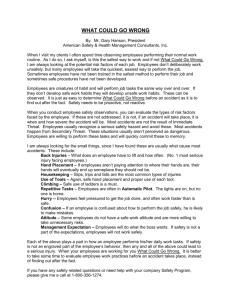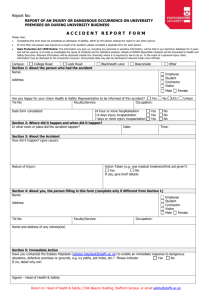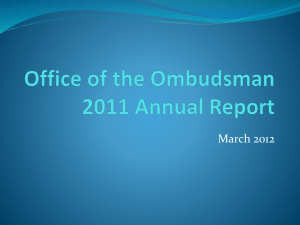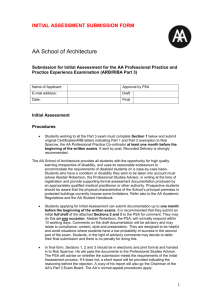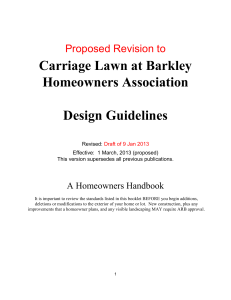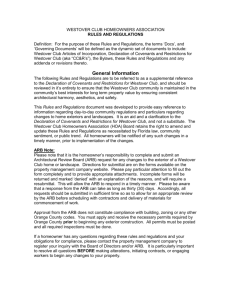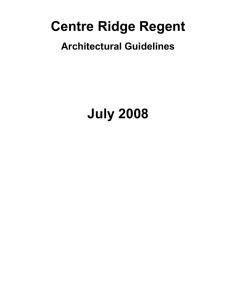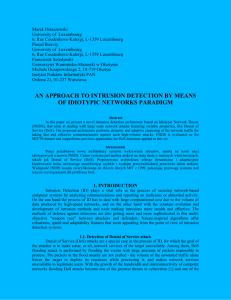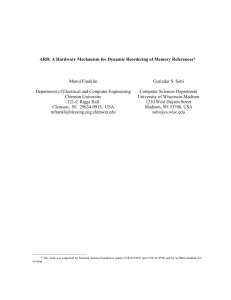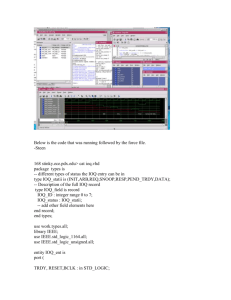Effective Safety Committee Development Guide
advertisement
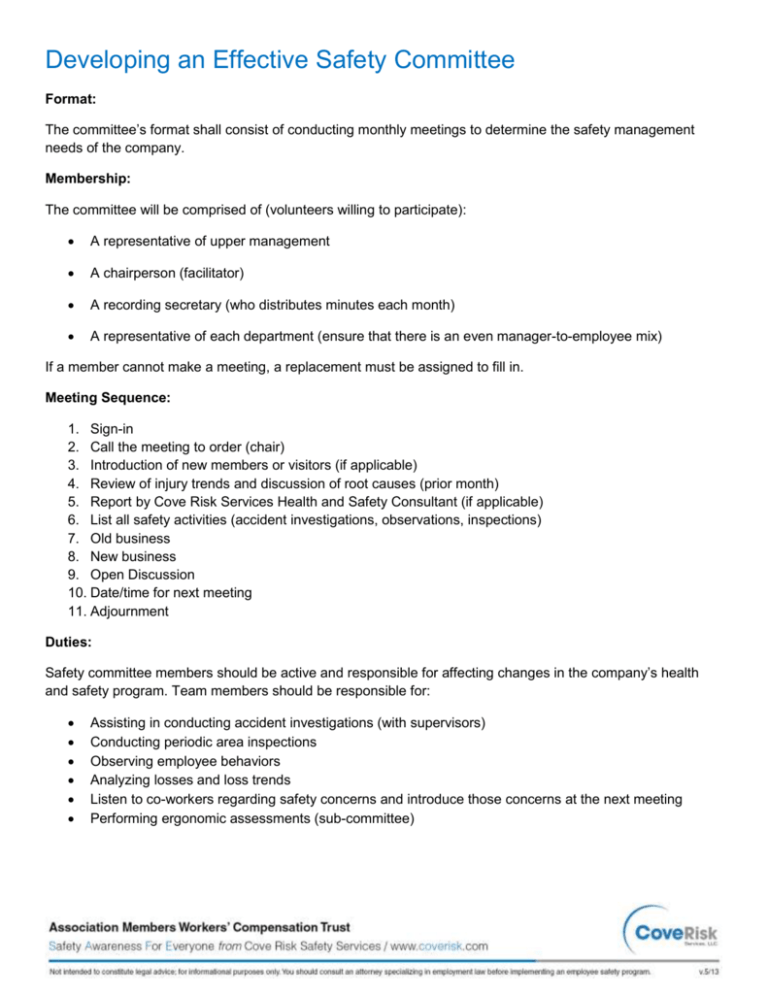
Developing an Effective Safety Committee Format: The committee’s format shall consist of conducting monthly meetings to determine the safety management needs of the company. Membership: The committee will be comprised of (volunteers willing to participate): A representative of upper management A chairperson (facilitator) A recording secretary (who distributes minutes each month) A representative of each department (ensure that there is an even manager-to-employee mix) If a member cannot make a meeting, a replacement must be assigned to fill in. Meeting Sequence: 1. Sign-in 2. Call the meeting to order (chair) 3. Introduction of new members or visitors (if applicable) 4. Review of injury trends and discussion of root causes (prior month) 5. Report by Cove Risk Services Health and Safety Consultant (if applicable) 6. List all safety activities (accident investigations, observations, inspections) 7. Old business 8. New business 9. Open Discussion 10. Date/time for next meeting 11. Adjournment Duties: Safety committee members should be active and responsible for affecting changes in the company’s health and safety program. Team members should be responsible for: Assisting in conducting accident investigations (with supervisors) Conducting periodic area inspections Observing employee behaviors Analyzing losses and loss trends Listen to co-workers regarding safety concerns and introduce those concerns at the next meeting Performing ergonomic assessments (sub-committee) Analyze Loss Data: Each month, the facilitator should review and chart accident data (i.e., from accident investigation reports, workers’ compensation loss runs, etc.). He/she should then provide charts to the safety committee each quarter to compare trends. Accident Review Board: Depending on how often injuries occur, you may want to create an Accident Review Board (ARB). The purpose of the ARB is to conduct “formal” reviews of accidents that were investigated by management. The ARB should consist of at least one Safety Committee member, a department head and an hourly employee. Each time an accident report is reviewed by the Safety Committee facilitator, he/she should determine if it warrants ARB review. If so, the ARB will convene to determine what action, if any should be taken. (This may also help reduce fraudulent claims.) Recommendations to Management: Once the Safety Committee agrees to changes in health and safety policies and/or procedures, the facilitator should draft a proposal and present the proposal to top management for consideration. The results of top management’s decision should be relayed to the Safety Committee for discussion, implementation and/or possible modification. Measure Progress: The Safety Committee facilitator should develop a (tracking system) that indicates whether there has been an upward or downward trend in claims frequency (number of injuries) and severity (cost of injuries). The Safety Committee should then develop strategies to reduce frequency and/or severity based on any noted increases. Reachable goals should be set for the following year. Depending on the frequency of incidents, other areas of trending should be considered (e.g. “day of week”, “time of day”, “shift/supervisor”, “machine type or area”, “length of employment”, etc.
